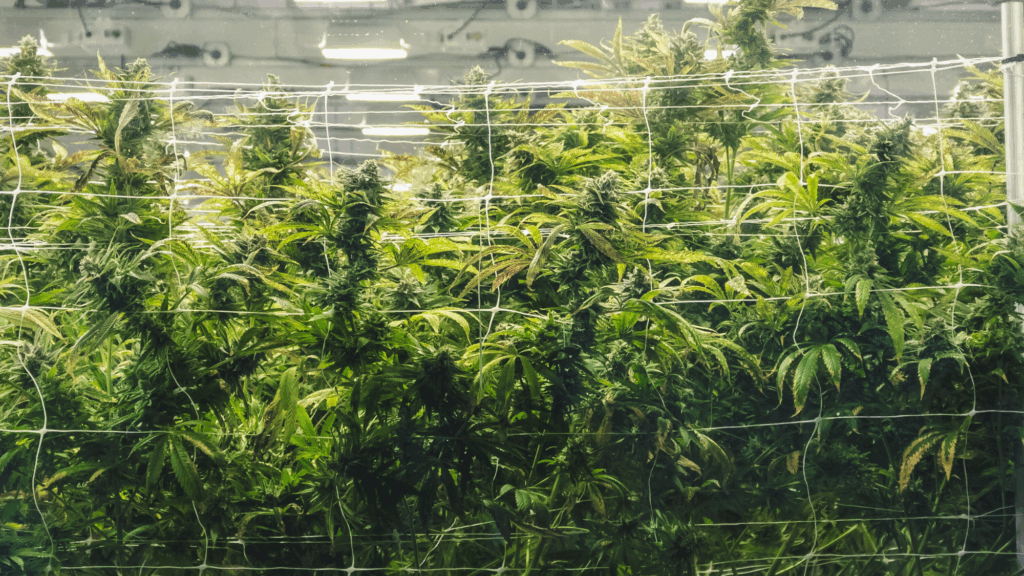Lawmakers in Augusta considered a series of bills Thursday afternoon pertaining to the regulation of Maine’s sometimes corybantic cannabis industry.
During the public hearing that morning, the Veterans and Legal Affairs Committee heard testimony on four bills all designed to accomplish a similar goal: cracking down on the illicit cannabis grows that have cropped up throughout the state in recent years.
A work session was held shortly after the conclusion of the public hearings where the Committee unanimously voted to reject three of these four proposals without any discussion.
The fourth bill, Rep. Ann Fredericks’ (R-Sanford) LD 1609, would be taken up by at a later date, members decided.
While the rejected bills sought to target individuals with recent drug-related convictions, as well as physical locations that have been found in repeated violation of the law, LD 1609 places a specific emphasize on organized crime.
Under this bill, the Office of Cannabis Policy must reject registration applications form any person or location identified by “state or federal law enforcement officers” as being associated with organized crime during the prior five years.
It also requires that registrations be revoked from any person or location known to be associated with organized crime during the most recent five-year period.
Due to the similar goals shared among this and the three now-rejected bills, it was explained during the public hearing that the Committee intended to move forward with only one, if any, of these proposals.
The three bills unanimously voted Ought Not to Pass by the Committee all focused on disqualification and rejection based on prior drug- or cannabis-related offenses.
Sen. Scott Cyrway’s (R-Kennebec) LD 1455 would have updated the definition of “disqualifying drug offense” to include convictions related to the “cultivation or distribution of cannabis” after October 1, 2025.
LD 1455 would have also prohibit registrations from being issued to people or facilities currently under investigation for “illegal cultivation or distribution of cannabis.” People convicted of “illegal cultivation or distribution” of cannabis would also be barred from obtaining a registration.
“[Illegal grows are] an attack on Maine’s cannabis industry, cannabis consumers, home buyers, and the public alike,” said Sen. Cyrway during Thursday’s public hearing. “It is time we strengthen our laws to help curb this problem.”
Sen. Jeff Timberlake’s (R-Androscoggin) LD 1320 sought only to update the definition of a “disqualifying drug offense” to include any convictions within a three-year period prior to submitting an application.
In introducing this bill, Sen. Timberlake suggested that it struck a “fair balance between second chances and accountability,” as the state’ legal framework for cannabis operations “only works if everyone plays by the same rules.”
Sponsored by Rep. Chad R. Perkins (R-Dover-Foxcroft), LD 1608 focused solely on blocking registrations from being issued for certain physical locations, preventing registrations from being granted for properties found to have repeatedly violated cannabis-related laws.
It would have placed a ten-year moratorium on issuing registrations to a geographic location found to have repeated violations of Maine’s cannabis regulations.
According to Rep. Perkins, this would prevent illicit grows from evading state law “simply by putting a new front-man at the face of the operation.”
When Rep. Fredericks introduced LD 1609, the only of these four bills still on the table, she cited concerns over “sophisticated and well-funded network[s]” running illicit cannabis operations in Maine.
The Veterans and Legal Affairs Committee is scheduled to consider, and potentially cast preliminary votes on, this bill during a work session on Monday, May 12 at 9:45am.
Click Here for More Information on LD 1609
Lawmakers in Augusta considered a series of bills Thursday afternoon pertaining to the regulation of Maine’s sometimes corybantic cannabis industry. During the public hearing that morning, the Veterans and Legal Affairs Committee heard testimony on four bills all designed to accomplish a similar goal: cracking down on the illicit cannabis grows that have cropped up Read More


